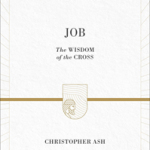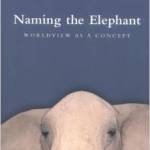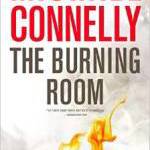I love to read. By God’s grace I am a pretty fast reader; I usually read a couple books each week. I find it helpful to summarize my thoughts on each book and I offer those thoughts in the hope that you will be encouraged to either read or pass over the given title.
 Job: The Wisdom of the Cross by Christopher Ash. Lord willing, tomorrow night at IDC we will conclude our sermon series on the book of Job. Ash’s commentary is hands down the best commentary on Job I’ve used and – this isn’t a stretch – one of the finest commentaries I’ve ever read. Ash’s command of Job’s theological nuances and potential hermeneutical pitfalls is immense, and his pastoral antennae are always on alert. I rarely found myself in disagreement with his interpretations of the difficult speeches, and routinely found the conclusions illuminating and convincing. If you ever preach on Job this is the one commentary you must have. If you don’t plan to preach on Job anytime soon grab a copy anyway, this is red meat for the soul.
Job: The Wisdom of the Cross by Christopher Ash. Lord willing, tomorrow night at IDC we will conclude our sermon series on the book of Job. Ash’s commentary is hands down the best commentary on Job I’ve used and – this isn’t a stretch – one of the finest commentaries I’ve ever read. Ash’s command of Job’s theological nuances and potential hermeneutical pitfalls is immense, and his pastoral antennae are always on alert. I rarely found myself in disagreement with his interpretations of the difficult speeches, and routinely found the conclusions illuminating and convincing. If you ever preach on Job this is the one commentary you must have. If you don’t plan to preach on Job anytime soon grab a copy anyway, this is red meat for the soul.
Here are the other commentaries on Job I read cover to cover:
- The Storm Breaks by Derek Thomas. Thomas did his PhD on John Calvin’s sermons through Job. So it shouldn’t surprise the reader to see great similarity between the Welsh man’s commentary and the old reformer’s preaching on this wisdom book. A fantastic pastoral and devotional commentary.
- Job by Steve Lawson. Lawson’s homiletical scheme (his astounding ability to alliterate notwithstanding) feels forced on the text at points, but this one was surprisingly useful.
- The Message of Job by David Atkinson. Largely solid, but I found the format unusually frustrating for a BST volume. Rather than work through the text with consecutive commentary, Atkinson breaks it up by figure – Eliphaz’s speeches, Bildad’s speeches, etc. Understandable, yet maddening for sermon preparation.
- Job by Elmer Smick. The concision of Smick’s commentary is a welcome departure from the normal verbosity associated with Job, but some sections demanded more attention than Smick was willing to give. Still, it’s a useful volume.
- Crying Out for Vindication: The Gospel According to Job by David Jackson. On the whole I found this one not very helpful. I can forgive the topical arrangement of Job’s material, but Jackson is way too quick at many points to jump out of Job into the New Testament. The book might be more aptly titled, “New Testament Themes Found in the Book of Job.”
 Naming the Elephant: Worldview as a Concept by James Sire. In 1976 James Sire published The Universe Next Door, a widely used textbook on worldview that not only defined worldview, but examined seven dominant worldviews of the time. As students, colleagues, and critics interacted with his seminal text Sire increasingly felt the need to revise his original thesis. Naming the Elephant is his effort at revision. Sire’s refinement concentrates on recognizing worldview as not merely a set of basic concepts, but a fundament orientation of the heart (channeling the recent work by David Naugle). Furthermore, he emphasizes the role of behavior in the determination of what a person’s worldview really is, after all Jesus said, “Out of the overflow of the heart the mouth speaks.” A solid book for anyone interested in the concept of worldview.
Naming the Elephant: Worldview as a Concept by James Sire. In 1976 James Sire published The Universe Next Door, a widely used textbook on worldview that not only defined worldview, but examined seven dominant worldviews of the time. As students, colleagues, and critics interacted with his seminal text Sire increasingly felt the need to revise his original thesis. Naming the Elephant is his effort at revision. Sire’s refinement concentrates on recognizing worldview as not merely a set of basic concepts, but a fundament orientation of the heart (channeling the recent work by David Naugle). Furthermore, he emphasizes the role of behavior in the determination of what a person’s worldview really is, after all Jesus said, “Out of the overflow of the heart the mouth speaks.” A solid book for anyone interested in the concept of worldview.
 Finally Free: Fighting for Purity with the Power of Grace by Heath Lambert. We plan to have our men at IDC read through Lambert’s little book in February, so our elders read it in preparation. If you took out the chapter on “Using Your Spouse (or Your Singleness)” to Fight Pornography” the book is actually a field manual for killing all kinds of sin. Surely one can use sorrow, humility, gratitude, and confession to slay various, fleshly enemies. If Lambert ever does a second edition I’d love to see added focus on the roles a local church and the ordinary means play in fighting for purity. Nevertheless, Finally Free is the finest book on the subject I’ve ever read. Churches everyone would do well to have this one available.
Finally Free: Fighting for Purity with the Power of Grace by Heath Lambert. We plan to have our men at IDC read through Lambert’s little book in February, so our elders read it in preparation. If you took out the chapter on “Using Your Spouse (or Your Singleness)” to Fight Pornography” the book is actually a field manual for killing all kinds of sin. Surely one can use sorrow, humility, gratitude, and confession to slay various, fleshly enemies. If Lambert ever does a second edition I’d love to see added focus on the roles a local church and the ordinary means play in fighting for purity. Nevertheless, Finally Free is the finest book on the subject I’ve ever read. Churches everyone would do well to have this one available.
 The Burning Room by Michael Connelly. I love Connelly’s Lincoln Lawyer series focused on Mickey Haller, but I had yet to read any one of the volumes in his longer-running and better-selling Harry Bosch series. Finally, after sufficient prodding from a few family members I dove into Mr. Bosch by reading the latest entry The Burning Room. It’s a bit strange I’m sure, but when jumping into a tenured series I read the most recent entry in a series rather than the first. Bosch is a L.A. cold-case detective (he was previously one of the best homicide detectives in the city) in the twilight of his career and is confronted with two prominent cold cases that prove to be intensely emotional and political. The Burning Room is fun, simple, and informative . . . everything you’d expect from Connelly.
The Burning Room by Michael Connelly. I love Connelly’s Lincoln Lawyer series focused on Mickey Haller, but I had yet to read any one of the volumes in his longer-running and better-selling Harry Bosch series. Finally, after sufficient prodding from a few family members I dove into Mr. Bosch by reading the latest entry The Burning Room. It’s a bit strange I’m sure, but when jumping into a tenured series I read the most recent entry in a series rather than the first. Bosch is a L.A. cold-case detective (he was previously one of the best homicide detectives in the city) in the twilight of his career and is confronted with two prominent cold cases that prove to be intensely emotional and political. The Burning Room is fun, simple, and informative . . . everything you’d expect from Connelly.
Click here to find other entries in the Recent Reads series.
